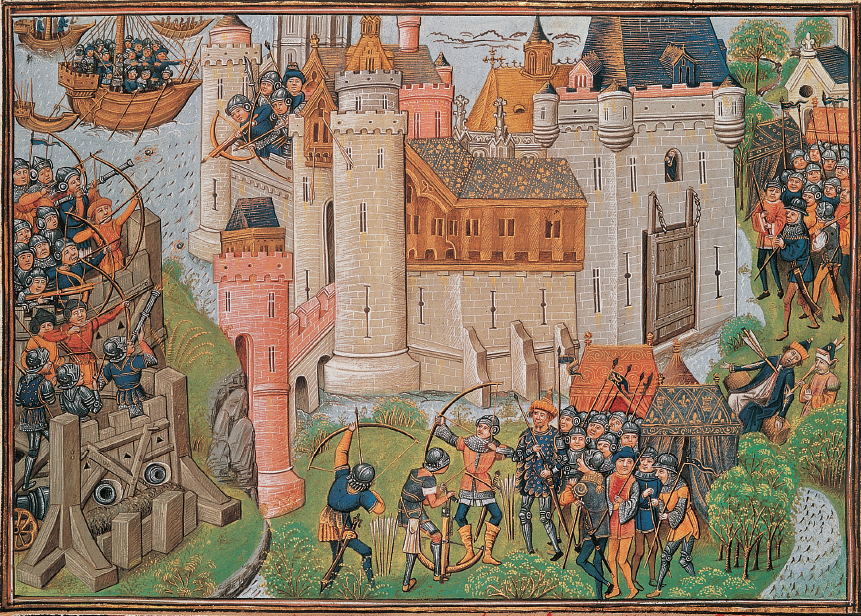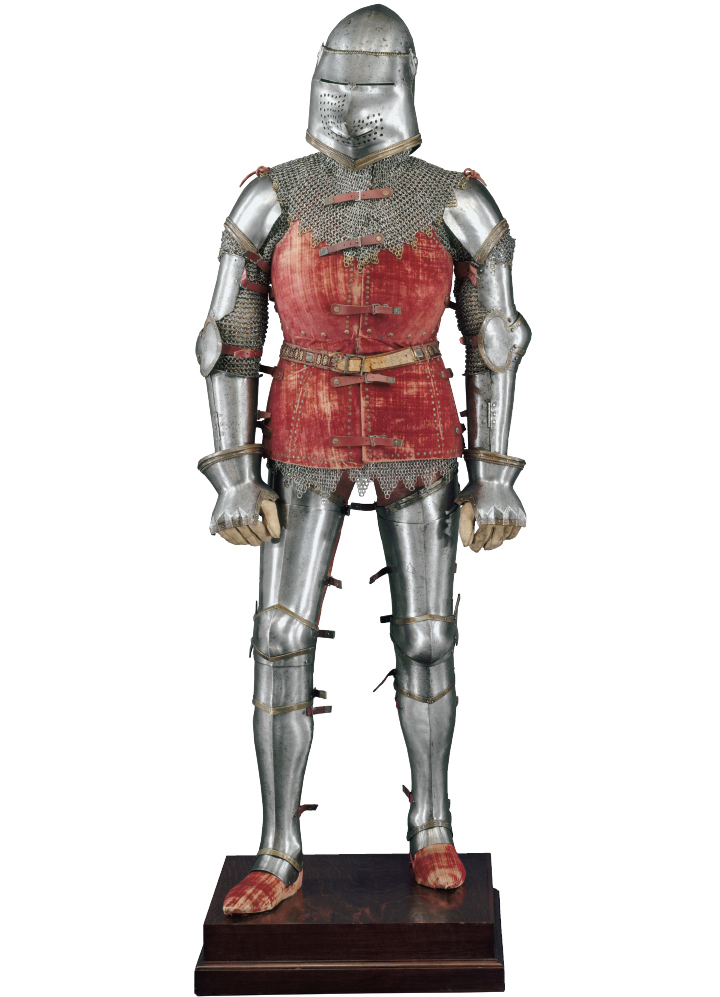Understanding World Societies:
Printed Page 412
The Hundred Years’ War
While the plague ravaged populations in Asia, North Africa, and Europe, a long international war in western Europe added further death and destruction. England and France had engaged in sporadic military hostilities from the time of the Norman Conquest in 1066 (see “The Restoration of Order”), and in the middle of the fourteenth century these became more intense. From 1337 to 1453 the two countries intermittently fought the Hundred Years’ War.

This miniature of a battle in the Hundred Years’ War shows the French besieging an English-
The Hundred Years’ War had a number of causes. Both England and France claimed the duchy of Aquitaine in southwestern France, and the English king Edward III argued that, as the grandson of an earlier French king, he should have rightfully inherited the French throne. Nobles in provinces on the borders of France who were worried about the growing power of the French king supported Edward, as did wealthy wool merchants and clothmakers in Flanders who depended on English wool.
The war, fought almost entirely in France, consisted mainly of a series of random sieges and raids. During the war’s early stages, England was successful, primarily through the use of longbows fired by well-

This fifteenth-
The ultimate French success rests heavily on the actions of Joan, an obscure French peasant girl whose vision and military leadership revived French fortunes and led to victory. Born in 1412 to well-
At Orléans, Joan inspired and led French attacks, and the English retreated. As a result of her successes, Charles made Joan co-
Joan and the French army continued their fight against the English. In 1430 England’s allies, the Burgundians, captured Joan and sold her to the English, and the French did not intervene. In 1431 she was condemned as a heretic and burned at the stake in the marketplace at Rouen. The French army continued its victories without her, and demands for an end to the war increased among the English, who were growing tired of the mounting loss of life and the flow of money into a seemingly bottomless pit. Slowly the French reconquered Normandy and finally ejected the English from Aquitaine. At the war’s end in 1453, only the town of Calais remained in English hands.
The long war had a profound impact on the two countries. In England and France the war promoted nationalism. It led to technological experimentation, especially with gunpowder weaponry, whose firepower made the protective walls of stone castles obsolete. The war also stimulated the development of the English Parliament. Edward III’s constant need for money to pay for the war compelled him to summon it many times, and its representatives slowly built up their powers.